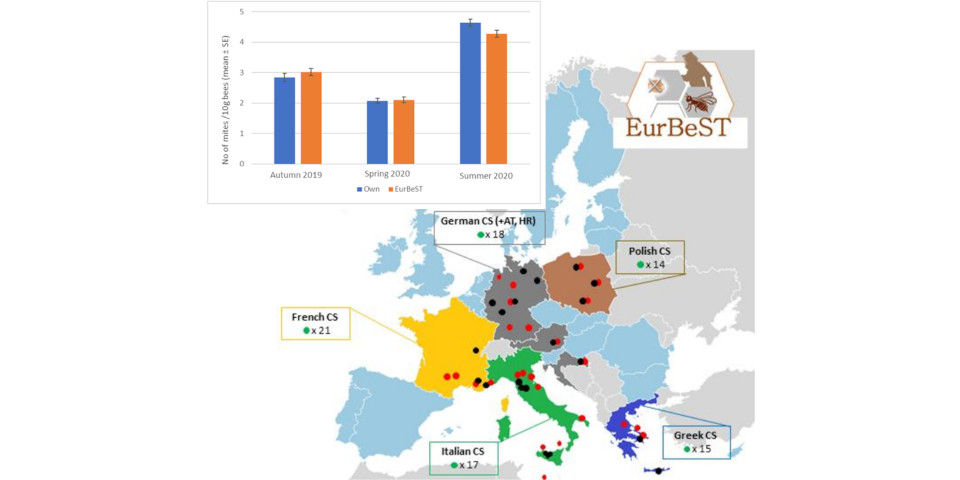The EurBeST Pilot project “Restructuring of the honey bee chain and Varroa resistance breeding & selection programme” (Agri 2017-0346) ran from 2019 to 2021 and explored possibilities for increasing the varroa resistance of commercially available honey bees by selective breeding, and analysed ways to improve beekeepers’ access to resistant material. Analysis of the EU market for reproductive material, including queen production and trade, showed high diversity of organisation and a weak development of breeding structures in some countries. A survey showed that EU beekeepers are satisfied with the quality of breeding material, except for varroa resistance traits. Despite growing demand, no established market for varroa-resistant stock in Europe exists, and supply of queens is limited. To provide reliable data regarding the performance of resistant stocks, specific lines were compared under commercial conditions in five case studies, where both traditional traits and varroa resistance (VSH, SMR, REC, hygienic behaviour) were evaluated. Strong genotype-environment interactions affected many traits, highlighting the importance of local adaptation. Local lines produced more honey, but the test lines had fewer mites at the end of the study. Some lines from long-term selection programs combined good productivity and improved varroa resistance. A cost-benefit analysis provided insights into the economic aspects of queen production, colony evaluation, and selection for varroa resistance. Based on the results, we recommend that regional breeding structures should be developed to promote selective breeding for varroa resistance on locally adapted stock. Scientists and breeders should cooperate within these infrastructures, and public support should be granted to sustain the high cost of selection.
More details can be found on the following links:










